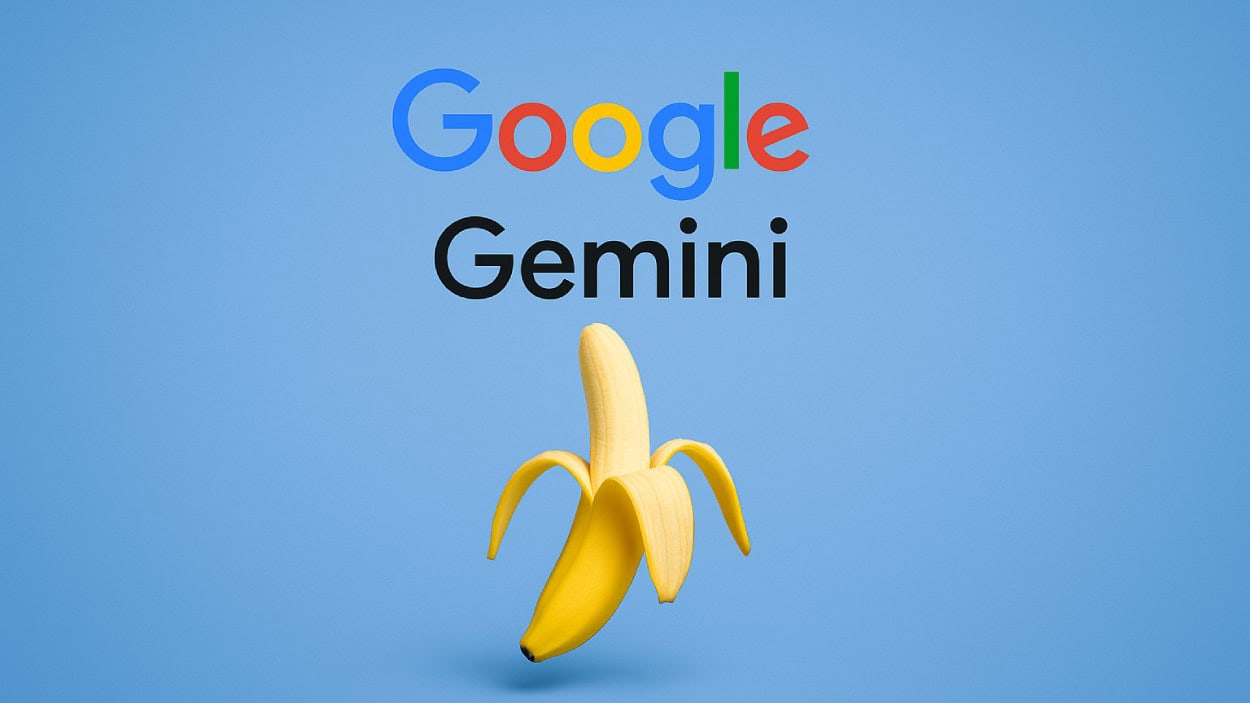Google has officially launched its most powerful AI image editing model yet, the Gemini 2.5 Flash Image, also known by its viral nickname “Nano Banana.”
Quick Summary – TLDR:
- Google rolls out the Gemini 2.5 Flash Image model in its Gemini app and across developer platforms
- The model, nicknamed “Nano Banana,” topped benchmarks with its image editing capabilities
- Users can now make precise, multi-step edits and blend photos using simple text prompts
- All AI-generated content includes both visible and invisible watermarks for transparency
What Happened?
Google has officially revealed that the mysterious “Nano Banana” image model, which recently gained viral attention for its lifelike image editing, is in fact its new Gemini 2.5 Flash Image model. This upgraded AI system is now available in the Gemini app and developer tools, offering users deeper control over how photos are edited using natural language instructions.
Our image editing model is now rolling out in @Geminiapp – and yes, it’s 🍌🍌. Top of @lmarena’s image edit leaderboard, it’s especially good at maintaining likeness across different contexts. Check out a few of my dog Jeffree in honor of International Dog Day – though don’t let… pic.twitter.com/8Y45DawZBc
— Sundar Pichai (@sundarpichai) August 26, 2025
Gemini’s AI Image Editing Just Got a Whole Lot Smarter
The Gemini app now features native AI photo editing that gives users the power to make detailed edits without distorting facial features or backgrounds. Whether users want to try a new hairstyle, transport themselves to a different country, or combine multiple images into one scene, the new tool makes it possible and impressively consistent.
According to Google, this model has been designed to preserve the identity of people, pets, and objects, even after multiple rounds of editing. This means a person’s face will stay recognizable whether you’re changing their outfit, the time period, or the background.
What You Can Do with Gemini’s New Image Model
Here’s what users can expect from the updated AI editing features:
- Precise facial consistency: Keeps people and pets looking like themselves across all edits
- Location and outfit swaps: Try on different clothes or see how you’d look in another country or era
- Multi-turn editing: Paint walls, add furniture, or layer designs step by step in a single image
- Style transfers: Take a pattern from one image and apply it to another item, like putting butterfly wings on a dress
- Photo blending: Merge several images, like a person and their pet, into a single creative scene
The model is accessible to both free and paid users, and Google has integrated it not just in the Gemini app but also across its developer platforms including Google AI Studio, Gemini API, and Vertex AI.
Nano Banana: The Model Everyone Was Talking About
Before its official unveiling, this AI image editor had been quietly trending under the alias “Nano Banana” on LMArena, a crowdsourced platform that benchmarks AI models. It scored a massive 1,362 ELO points, placing it significantly above competitors like Flux.1 Kontext. Its popularity and performance had AI enthusiasts buzzing for weeks.
🚨🍌Breaking News: Gemini-2.5-Flash-Image-Preview (“nano-banana”) by @GoogleDeepMind now ranks #1 in Image Edit Arena. In just two weeks:
— lmarena.ai (@lmarena_ai) August 26, 2025
🟡“nano-banana” has driven over 5 million community votes in the Arena
🟡Record-breaking 2.5M+ votes casted for this model alone
🟡It has… https://t.co/O1wpnbxaK3 pic.twitter.com/dTDV2UU80n
Nicole Brichtova, a product lead at Google DeepMind, emphasized the significance of the upgrade, saying, “We’re really pushing visual quality forward, as well as the model’s ability to follow instructions.”
We just released the world’s best image model. Not bad for a fruit. 🍌 pic.twitter.com/K2RZcU3zlW
— Nicole Brichtova (@nbrichtova) August 26, 2025
Competing in the AI Image Arms Race
This launch comes at a critical time as AI image tools become a hot battleground for big tech companies. Google is clearly aiming to close the gap with OpenAI, whose ChatGPT saw massive engagement after launching its image generator earlier this year. Google’s own user base, as reported in July, stands at 450 million monthly users compared to ChatGPT’s 700 million weekly users.
To protect against misuse, Google says every image edited or generated within Gemini comes with a visible ‘ai’ watermark and an invisible SynthID digital signature. This is part of a broader effort to combat deepfakes and maintain public trust.
SQ Magazine Takeaway
I’m honestly impressed by how far Google has taken Gemini’s image editing tools. This isn’t just a shiny upgrade but it’s a major leap that makes photo editing smarter, safer, and a lot more fun. The consistency in faces and fine details means the tool is now practical, not just experimental. If you’ve ever wished Photoshop could read your mind, this comes pretty close. I’m curious to see how Google will build on this momentum and whether it’ll finally start closing that gap with OpenAI. But for now, Nano Banana isn’t just a meme, it’s a game-changer.


































































